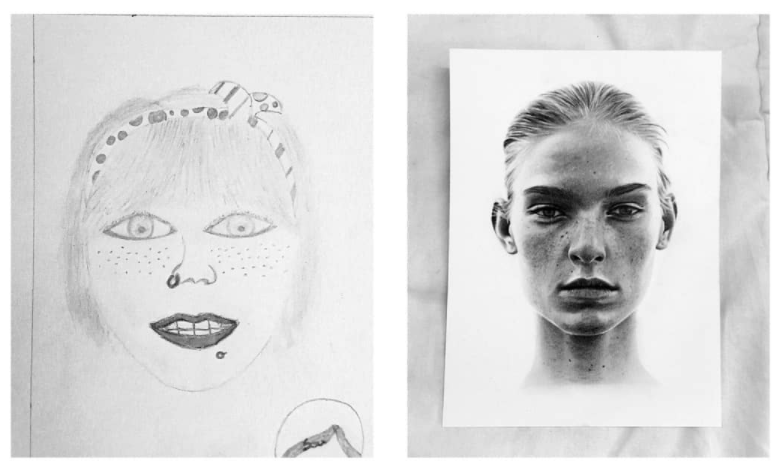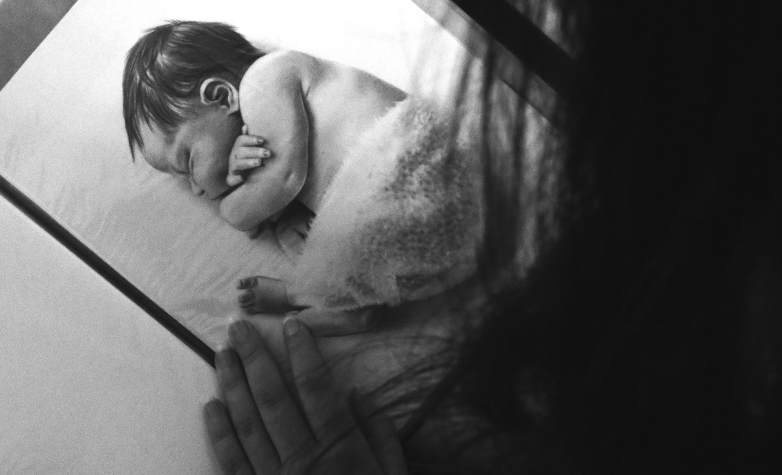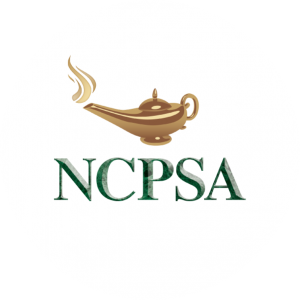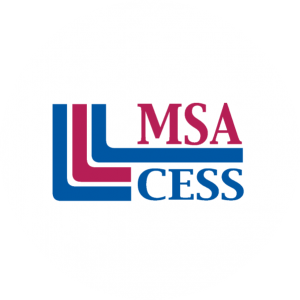When senior Mara Costa, a self-taught realistic artist, first began her studies at Clonlara School, she felt a little “displaced,” so she passed time reading and sketching. “I spent endless hours drawing,” she says, “without rushing, without demanding anything of myself, without expectations from myself or others.”
She soon found that the flexibility of her schedule at Clonlara gave her the time to slowly create, carefully observe, and deeply reflect on her work. “I was unconsciously analyzing what was wrong, what had to be improved.” The result was an astounding evolution of skill over a very short period of time.

Experiencing Flow
When reading a book far into the night, practicing a tennis serve thousands of times, or, like Mara, sketching with pencils for hours on end, students may lose the sense of time. Author Mihály Csíkszentmihályi described this as the “experience of flow,” a focused state of mind in which one immerses oneself completely in an activity. It is an “optimal experience.”
“Studying something I really like and am interested in flows like a game,” says Mara. “Studying something I’m not so interested in seems like a waste of time.” How, then, can students experience learning that feels more engaging, even when the topic does not grab their attention? Mara’s answer: begin with curiosity!
“I always tried to find a topic that interested me within what I needed to study. I realized that there is always a curiosity to be satisfied by studying a topic.”
The Gift of Reclaimed Time
As a student in Clonlara’s Off-Campus Program, Mara had the flexibility to fine-tune and mature her artistic skills. When asked how her capabilities improved so quickly and so dramatically, she answered, “Time. Time and dedication. When we learn according to someone else’s program, our tasks are reduced, and time is counted and pre-determined by others.”
Mara’s parents were happy to give both her and her brother the opportunity to learn in a different way through Clonlara, especially because it meant they could spend more time together! “We always enjoyed being with each other, and in a public school that time was limited to an hour or two a day and a weekend that would fly by.”
When Learning Feels Like Playing
Mara describes herself as a very strong-willed child, so even when asked to work on subjects she found uninteresting, she was still able to find a way to make them “hers.”
“The biggest change I felt after switching to Clonlara’s approach was the feeling of never really ‘working.’ Contrary to what I felt before, I started to feel that I was playing with the themes I liked and exploring them in a simple, often fun, way.”

Learning Is a Personal Journey
We often assume a student needs an expert from whom to learn specialized skills. However, as Mara explains, finding a master teacher is not necessarily a must.
“I completely understand this fear of not being able to learn without having a guide. I felt it a lot when I first joined Clonlara,” Mara admits. “Over time I came to realize that when we choose a topic that we like to study or follow, we don’t need the voice of another person to guide us in learning. We can take courses, read books, observe, test, make mistakes, and understand how to do it correctly.”
While Mara did research other artists to understand the materials they used, she points out that her skills grew when she “decided to dedicate time and patience to the art of observing a reference and reproducing it.”
“From then on,” she says, “The journey was entirely mine.”
Advice for Self-Directed Learners
When allowing your inquisitiveness to lead the way, it can feel a little disconcerting at first. “Anyone starting a self-learning journey realizes that it is not as romanticized a path as it seems,” explains Mara. Autonomous learners oversee the direction they take, and that means the path may contain unexpected obstacles and difficulties.
Mara faced times when she felt uninspired, discouraged, and aimless which sometimes led to “creative blocks.” During those times, she would confront her feelings with questions. “I asked myself if I really liked what I was doing or if I was just continuing a routine I had been following for a long time.”
To help navigate surprising hurdles, Mara has three important tips for fellow students on their own self-directed learning journeys:
- Don’t isolate yourself. Whenever you can, study with company, ask for help, look for tutors, friends, teachers. Don’t let your singular study become solitude.
- Manage your time. Follow your passions with a schedule in mind, don’t let your study or work take up all your time. It is very, very, very important to maintain a good balance between study/work and pleasure. Take time to read recreationally, to go for a walk, to go see the sea or the stars, to watch a movie, or to do whatever makes you happy. Find a balance between all the parts of your life that make sense for the phase you are going through.
- It’s okay to be different. In the early days when I had to explain to the people in my life the new school I was going to and how it works completely different from what they were used to and knew, I felt annoyed and maybe a little ashamed. Now I can see that it’s completely absurd, but at the time it was complicated. All people will reach a point in their lives where they take completely opposite paths and this, although difficult to process, is always a great sign! The difference is what makes you evolve and continue.
###
Mara’s inspiring story demonstrates how the educational experience can be transformed when students are given the opportunity to eagerly follow their passions and engage purposely in their learning. To see more of her art and possibly sign up in the future for her art lessons, follow Mara on Instagram.
Given the opportunity to follow your ideal learning path, what would you choose to study or practice?







